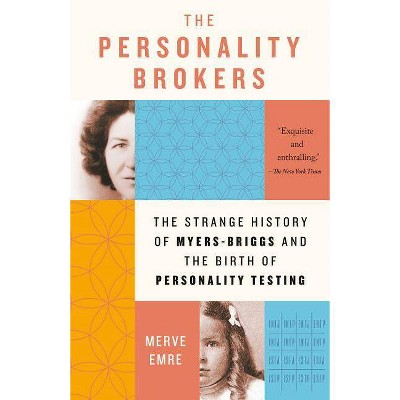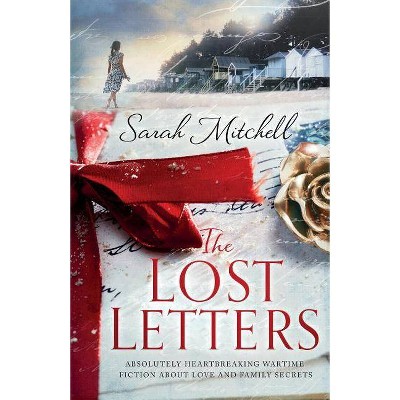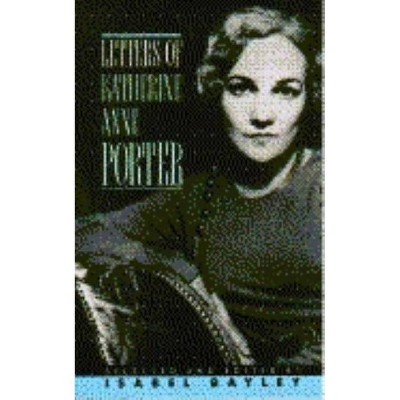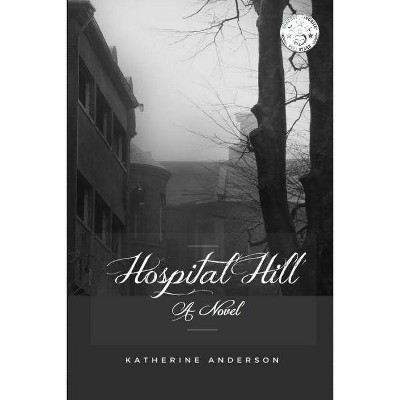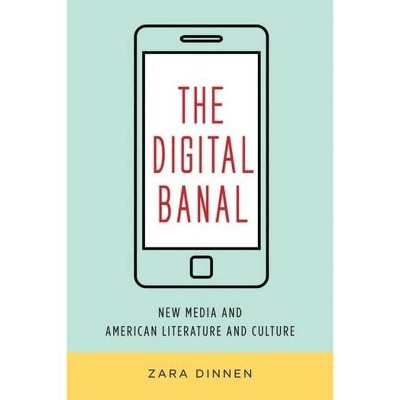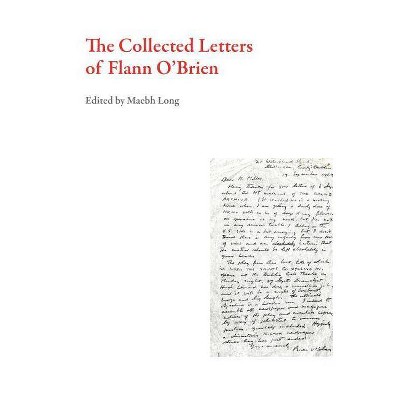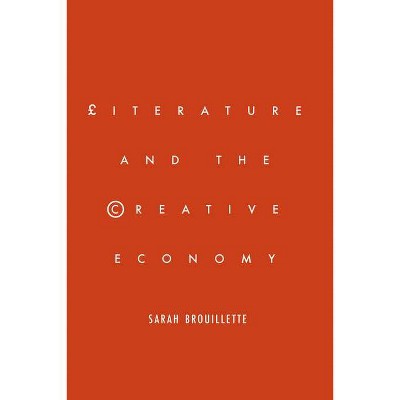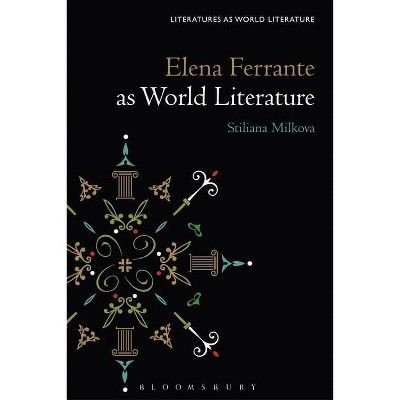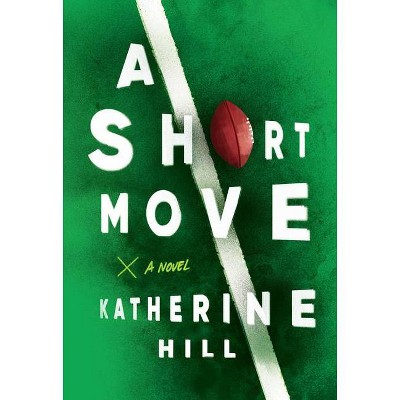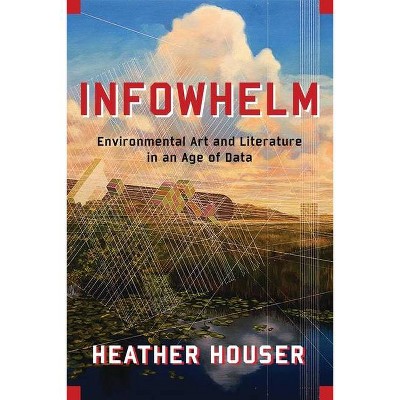The Ferrante Letters - (Literature Now) by Sarah Chihaya & Merve Emre & Katherine Hill & Jill Richards (Paperback)
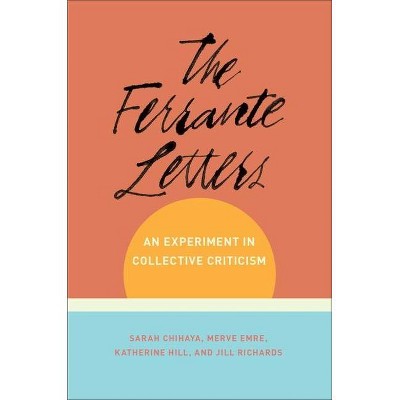
Similar Products
Products of same category from the store
AllProduct info
<p/><br></br><p><b> About the Book </b></p></br></br>In <i>The Ferrante Letters</i>, four critics create a series of epistolary readings of the Neapolitan Quartet that also develops new ways of reading and thinking together. In a series of intertwined, original, and daring readings of Elena Ferrante's work and her fictional world, they strike a tone that falls between the seminar and the book club.<p/><br></br><p><b> Book Synopsis </b></p></br></br>Like few other works of contemporary literature, Elena Ferrante's Neapolitan novels found an audience of passionate and engaged readers around the world. Inspired by Ferrante's intense depiction of female friendship and women's intellectual lives, four critics embarked upon a project that was both work and play: to create a series of epistolary readings of the Neapolitan Quartet that also develops new ways of reading and thinking together. <p/>In a series of intertwined, original, and daring readings of Ferrante's work and her fictional world, Sarah Chihaya, Merve Emre, Katherine Hill, and Jill Richards strike a tone at once critical and personal, achieving a way of talking about literature that falls between the seminar and the book club. Their letters make visible the slow, fractured, and creative accretion of ideas that underwrites all literary criticism and also illuminate the authors' lives outside the academy. <i>The Ferrante Letters</i> offers an improvisational, collaborative, and cumulative model for reading and writing with others, proposing a new method the authors call collective criticism. A book for fans of Ferrante and for literary scholars seeking fresh modes of intellectual exchange, <i>The Ferrante Letters</i> offers incisive criticism, insouciant riffs, and the pleasure of giving oneself over to an extended conversation about fiction with friends.<p/><br></br><p><b> Review Quotes </b></p></br></br><br><i>The Ferrante Letters</i> is extremely absorbing. It's rare to come across university-nurtured criticism, informed by theory, that is jargon-free and studded with insight.--Virginia Quarterly Review<br><br>What Chihaya, Emre, Hill, and Richards have created might cater more to the cultivated reader of Ferrante than the scholar, yet academics stand to learn much from as daring and novel a form of criticism as this one.--World Literature Today<br><br>I would heartily recommend <i>The Ferrante Letters</i> to fellow Ferrante fans, to feminist scholars, to readers interested in collective critical experiments.--Times Literary Supplement<br><br><i>The Ferrante Letters</i> is a bold, often inspiring attempt to rethink literary criticism and teaching practices on a collective basis, bridging the personal, critical and pleasurable.--Times Higher Education<br><br>A truly innovative approach to understanding the author-reader connection made all the more compelling for having one of the 20th century's greatest literary works at its core.--Library Journal<br><br>With fiery insight and feminist spirit, they have written a fitting companion to Ferrante's books.--Booklist (starred review)<br><br>If you are new at the Ferrante's world this one will be a great introduction...Highly recommended.--Il Feminile<br><br>The intimate tone lends a beguiling humanity to the book, inducing a pleasure more often associated with novels: the pleasure of character.--New Yorker<br><br><i>The Ferrante Letters </i>is a smart, beautiful, often moving meditation on the experience of reading the Neapolitan Quartet. This collection of letters and essays deftly manages that tricky balance of the creative, the critical, and the personal. A magnificent accomplishment.--Namwali Serpell, author of <i>The Old Drift: A Novel</i><br><br><i>The Ferrante Letters</i> gives us a unique opportunity to read--or reread--the Neapolitan novels with four distinct guides beside us, both literary and personal, posing questions and offering insights, analysis, and discussion that enrich and deepen our experience of the books.--Ann Goldstein, translator of Elena Ferrante's Neapolitan novels<br><br>In <i>The Ferrante Letters</i>, expertise and passion dovetail to great effect. This absorptive, idiosyncratic book is a work of collective criticism that offers a set of rigorous, convivial, and stylish readings of its primary texts, staging the critical act as also a creative one. This book reveals that the form literary criticism takes is as important as its content.--Sarah Blackwood, author of <i>The Portrait's Subject: Inventing Inner Life in the Nineteenth-Century United States</i><br><br>These four smart feminist critics reflect on the Neapolitan novels' exploration of women's friendship, intellectual labor, and personal lives. Reading <i>The Ferrante Letters</i> feels like you have stumbled upon your favorite reading group talking about your favorite author. It captures the way critical thinking should work, not in isolation but in conversation.--Pamela Thurschwell, University of Sussex<br><br>If <i>The Ferrante Letters</i> is meant to be an experiment in what would happen if boundaries, forms, and the shape of literary criticism were to dissolve and the opinions of critics blurred into one another, it is one that the authors recognize as both an exciting and frightening possibility.--New Republic<br><br>This book is a must-read for anyone who loves Elena Ferrante and for anyone who wants to think about new directions in literary criticism.--Bookriot<br><br>While it is primarily Ferrante devotees who will find this book most intriguing, those interested in alternative modes of critical inquiry should take a look as well. A sharp and lively book for fans and scholars.--Kirkus Reviews<br><br>The combination of intellectual rigor and personal reaction makes this fascinating reading for Ferrante fans.--Publishers Weekly<br><p/><br></br><p><b> About the Author </b></p></br></br>Sarah Chihaya is assistant professor of English at Princeton University. <p/>Merve Emre is associate professor of English at the University of Oxford. Her most recent book is <i>The Personality Brokers: The Strange History of Myers-Briggs and the Birth of Personality Testing</i> (2018). <p/>Katherine Hill is assistant professor of English at Adelphi University. She is the author of the novels <i>The Violet Hour</i> (2013) and <i>A Short Move</i> (2020). <p/>Jill Richards is assistant professor of English and affiliated faculty in the Women's, Gender, and Sexuality Studies Program at Yale University. She is the author of <i>The Fury Archives: Female Citizenship, Human Rights, and the International Avant-Gardes</i> (2020).
Price History
Cheapest price in the interval: 22.99 on October 22, 2021
Most expensive price in the interval: 22.99 on December 20, 2021
Price Archive shows prices from various stores, lets you see history and find the cheapest. There is no actual sale on the website. For all support, inquiry and suggestion messagescommunication@pricearchive.us
